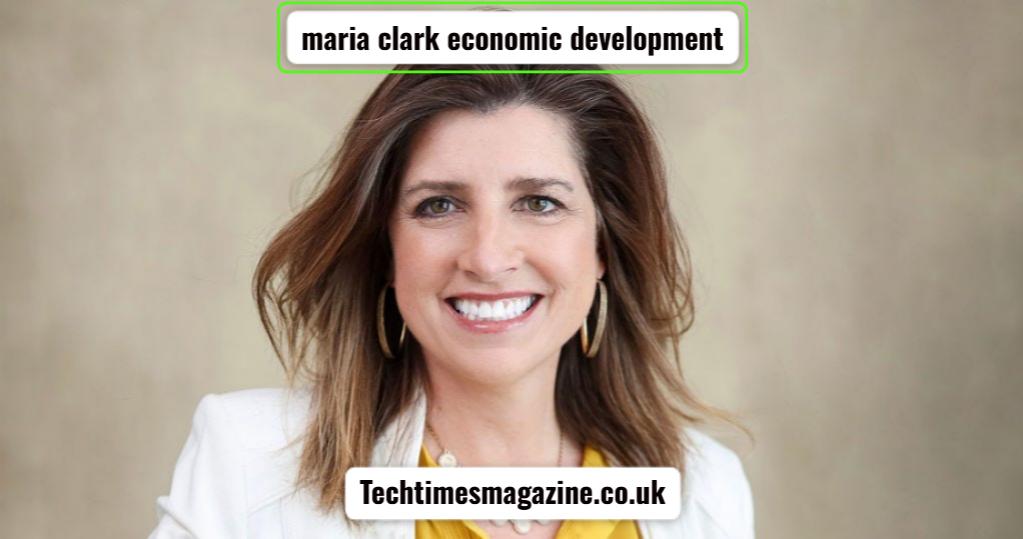
Economic development is a complex and multifaceted process that shapes the prosperity of communities, regions, and entire nations. One of the key figures driving meaningful progress in this field is Maria Clark. Her approach to economic development stands out for its innovative strategies, community focus, and sustainable growth models. This article dives deep into Maria Clark’s contributions to economic development, the challenges she addresses, and the lessons that policymakers and practitioners can draw from her work.
Who Is Maria Clark and Why Economic Development?
Maria Clark is an economist and development expert known for her dedication to fostering economic growth in underserved communities. Her work revolves around building resilient economies that create jobs, reduce poverty, and support local entrepreneurship. Clark’s perspective emphasizes inclusive growth — ensuring that economic benefits reach all segments of society.
Economic development is not just about increasing GDP or attracting big corporations; it’s about creating a vibrant economic ecosystem where individuals and businesses thrive. Clark’s focus on human capital, innovation, and infrastructure has led to significant improvements in several regions she has worked with.
The Core Philosophy Behind Maria Clark’s Economic Development Approach
At the heart of Maria Clark’s work is the belief that sustainable economic development must be equitable and community-driven. She advocates for policies that empower local populations rather than imposing top-down solutions. Clark often stresses the importance of:
- Engaging local stakeholders in decision-making
- Prioritizing education and skill development
- Supporting small and medium-sized enterprises (SMEs)
- Integrating technology with traditional industries
- Promoting environmental sustainability alongside economic growth
These five pillars guide much of Clark’s strategy, and her results demonstrate their effectiveness.
Economic Development Challenges Maria Clark Addresses
Economic development faces numerous obstacles, many of which Maria Clark highlights and tackles head-on:
- Income Inequality: Large disparities in income can stall growth and destabilize communities.
- Infrastructure Gaps: Poor infrastructure limits business potential and access to markets.
- Skill Mismatches: Without proper training, local workforces cannot meet industry needs.
- Access to Capital: Many small businesses lack funding necessary for expansion.
- Environmental Degradation: Unsustainable development harms resources needed for long-term prosperity.
By confronting these challenges, Clark aims to build economic frameworks that are not only effective but resilient to future shocks.
Maria Clark’s Innovative Strategies for Economic Growth
One of Clark’s standout achievements is her development of customized economic models tailored to specific community needs. She rejects one-size-fits-all formulas and instead applies data-driven analysis combined with local insights to design solutions. This approach includes:
- Creating innovation hubs that link universities and entrepreneurs
- Developing vocational training programs aligned with emerging industries
- Encouraging public-private partnerships to enhance infrastructure
- Implementing microfinance initiatives to support small businesses
- Advocating for policies that incentivize green technologies
Clark’s commitment to innovation ensures that economic development is dynamic and adaptable.
The Role of Education in Clark’s Economic Development Vision
Education is a central theme in Clark’s work. She sees it as the foundation for economic transformation. From early childhood through workforce development, Clark emphasizes lifelong learning opportunities to close skill gaps and boost productivity.
She has championed initiatives that link educational institutions with industry needs, ensuring curricula remain relevant. Moreover, Clark promotes entrepreneurship education as a tool to empower individuals to create jobs and innovate locally.
Community Engagement: A Non-Negotiable Aspect
Maria Clark insists that economic development cannot succeed without the active involvement of local communities. She argues that development projects often fail because they ignore the knowledge and needs of residents.
Clark’s projects consistently incorporate community workshops, advisory councils, and participatory planning. This inclusive approach builds trust, increases project relevance, and fosters a sense of ownership among stakeholders.
The Impact of Technology in Clark’s Development Framework
In today’s rapidly changing world, technology plays a pivotal role in economic advancement. Maria Clark integrates digital tools to enhance market access, improve service delivery, and increase operational efficiencies for businesses.
Her initiatives include:
- Supporting digital literacy programs
- Promoting e-commerce platforms for small businesses
- Facilitating access to broadband in rural areas
- Using data analytics for informed policy-making
- Encouraging smart infrastructure investments
This technology emphasis ensures that communities are not left behind in the digital economy.
Sustainability as a Cornerstone of Economic Progress
Unlike traditional models that prioritize growth at any cost, Clark advocates for sustainable economic development. She stresses that economic activities must protect natural resources and reduce carbon footprints.
Clark has collaborated with environmental experts to embed green practices in industrial development, urban planning, and agriculture. She also pushes for renewable energy adoption and climate-resilient infrastructure, recognizing their role in long-term economic stability.
Maria Clark’s Role in Policy Formulation
Beyond on-the-ground projects, Clark contributes extensively to policy development. Her research and field experience inform recommendations that shape regional and national economic strategies.
Clark is known for bridging the gap between academia, government, and private sectors, ensuring policies are evidence-based and pragmatically implementable. Her policy work has influenced reforms in labor markets, investment incentives, and social protection programs.
Measuring Success in Maria Clark’s Economic Development Projects
Clark employs rigorous monitoring and evaluation methods to measure impact. She believes that data is crucial to refining strategies and demonstrating accountability.
Key indicators she tracks include:
- Job creation rates
- Income growth among target populations
- Business startup and survival rates
- Infrastructure improvements
- Environmental quality metrics
This focus on measurable outcomes ensures continuous improvement and credibility.
Key Lessons from Maria Clark’s Economic Development Journey
Maria Clark’s career offers valuable lessons for anyone involved in economic development:
- Development must be inclusive and community-centered.
- Tailored solutions outperform generic approaches.
- Education and skills are pivotal for sustainable growth.
- Technology integration is essential for competitiveness.
- Environmental sustainability and economic growth must coexist.
These principles create a roadmap for effective and responsible economic development worldwide.
Five Critical Pillars in Maria Clark’s Economic Development Strategy
- Inclusive Participation: Encouraging local involvement in planning and implementation.
- Human Capital Development: Prioritizing education and skill-building initiatives.
- Infrastructure Enhancement: Investing in physical and digital connectivity.
- Entrepreneurship Support: Providing access to finance and business development services.
- Sustainability Focus: Ensuring economic activities protect the environment.
Together, these pillars create a balanced framework that promotes resilient and inclusive economic growth.
Challenges in Scaling Clark’s Models Across Regions
While Maria Clark’s approaches have shown success, scaling these models can be difficult. Differences in political will, resource availability, and cultural contexts mean strategies must be carefully adapted.
Additionally, funding constraints and bureaucratic hurdles often slow progress. Clark emphasizes that continuous dialogue, partnerships, and flexibility are necessary to overcome these obstacles and replicate successes.
The Future of Economic Development Inspired by Maria Clark
Maria Clark’s vision points to a future where economic development is smarter, greener, and more equitable. With technological advancements and growing awareness of environmental issues, her model provides a blueprint for addressing 21st-century challenges.
Her work suggests that collaboration between governments, private sector, civil society, and academia will be key in crafting resilient economies that leave no one behind.
Conclusion: Maria Clark’s Enduring Impact on Economic Development
Maria Clark’s contributions to economic development extend far beyond typical policy prescriptions. Her emphasis on inclusivity, innovation, education, technology, and sustainability offers a holistic blueprint for transforming economies and improving lives. By addressing systemic challenges and engaging communities, Clark demonstrates that development can be both effective and ethical.
Her work inspires policymakers, practitioners, and communities alike to pursue growth that is not only measured by economic indicators but also by human well-being and environmental health. In a rapidly changing global landscape, Maria Clark’s economic development philosophy provides a hopeful and pragmatic path forward.
Frequently Asked Questions (FAQs)
Q1: What makes Maria Clark’s approach to economic development unique?
Maria Clark’s approach is unique because it emphasizes inclusive growth, community engagement, and sustainability. She tailors solutions to local needs and integrates education, technology, and environmental considerations into development strategies.
Q2: How does Maria Clark involve communities in economic development projects?
Clark involves communities through participatory planning, workshops, and advisory councils. This ensures local voices are heard, projects meet actual needs, and there is greater stakeholder ownership.
Q3: Can Maria Clark’s economic development models be applied globally?
While her models are adaptable, successful application requires customization to local contexts, political environments, and available resources. Her emphasis on flexibility and partnership helps overcome these scaling challenges.
Also Read This: Date of Publication Game Dopple: Everything You Need to Know






